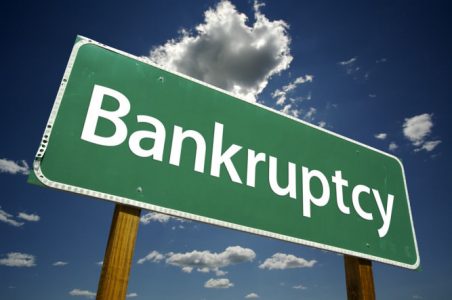Chapter 7 Bankruptcy In Ohio: A Comprehensive Guide
Introduction
In the face of financial hardship, both individuals and businesses in Ohio might encounter overwhelming debt that makes it hard to meet obligations. That's where Chapter 7 bankruptcy comes in. It provides a chance to begin anew, permitting debtors in Ohio to eliminate qualifying debts and reconstruct their financial situations. Our guide delves into the specifics of Chapter 7 bankruptcy in Ohio, from understanding its essence to gathering the necessary details for filing and navigating the discharge process.
Chapter 7 Bankruptcy Explained
Chapter 7 bankruptcy, also known as "liquidation bankruptcy," is a legal process designed to provide individuals and businesses with relief from overwhelming debt. Through this process, debtors can discharge certain unsecured debts, such as credit card balances, medical bills, and personal loans, allowing them to emerge from bankruptcy with a clean slate.
Information Needed to File for Chapter 7 Bankruptcy
Financial Information: Gather all relevant financial documents, including income statements, tax returns, and a list of assets and liabilities. This will help assess your financial situation and determine your eligibility for Chapter 7 bankruptcy.
List of Creditors: Create a comprehensive list of all your creditors, including their names, addresses, and the amounts owed. This list will form the basis for your bankruptcy petition.
Means Test Calculation: The means test evaluates your income and expenses to determine if you qualify for Chapter 7 bankruptcy. It compares your income to the median income in your state, and if your income is below the median, you likely qualify. Otherwise, a more detailed analysis is performed.
Property Exemptions: Identify the property that is exempt from liquidation under your state's bankruptcy laws. These exemptions vary from state to state and may protect assets such as your primary residence, car, clothing, and household goods.
Credit Counseling Certificate: Before filing for Chapter 7 bankruptcy, you must complete a credit counseling course from an approved agency. This course helps you explore alternatives to bankruptcy and understand the implications of your decision.
The Chapter 7 Bankruptcy Filing Process
Pre-Filing Preparation: Organize the required information and documents as outlined above. Consider seeking advice from a qualified bankruptcy attorney to ensure you navigate the process smoothly.
Filing the Petition: Your attorney will help you prepare the necessary forms and file the Chapter 7 bankruptcy petition in your local bankruptcy court. The automatic stay will go into effect, preventing creditors from taking further collection actions.
Meeting of Creditors (341 Meeting): Approximately 20 to 40 days after filing, you will attend a meeting with your creditors and the bankruptcy trustee. You'll answer questions about your financial situation under oath. Creditors can attend but often do not.
Asset Liquidation (if applicable): The bankruptcy trustee may sell non-exempt assets to repay creditors. However, many Chapter 7 cases are "no-asset" cases, meaning debtors do not have non-exempt assets to be liquidated.
Financial Management Course: After the meeting of creditors, you must complete a financial management course to receive a bankruptcy discharge.
Discharge: Typically, within a few months of filing, you will receive a bankruptcy discharge, releasing you from personal liability for eligible debts. Certain debts, like student loans and recent taxes, are generally not dischargeable.
Conclusion
Chapter 7 bankruptcy can offer a lifeline to those drowning in debt, allowing them to start anew with a clean financial slate. By understanding the information required and the process involved, individuals and businesses can navigate the Chapter 7 bankruptcy process with greater confidence. While this guide provides an overview, consulting with a qualified bankruptcy attorney is crucial to ensure your specific circumstances are properly addressed and to maximize the benefits of Chapter 7 bankruptcy.


